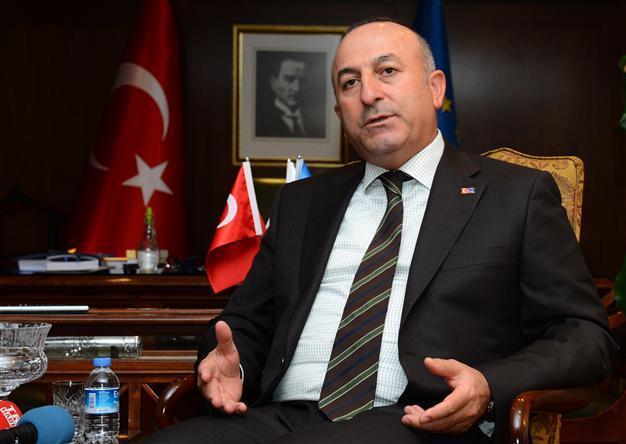US the last state to advise Turkey on Internet: EU minister
WASHINGTON

'Everybody knows the restrictions on the Internet in the US, especially regarding WikiLeaks,' Turkish EU Minister Mevlüt Çavuşoğlu said Feb 20. AA photo
The U.S. is the “last state to advise Turkey” with respect to the Internet, Turkish EU Minister Mevlüt Çavuşoğlu has said, responding to concerns expressed by Washington over the recent Internet law.
“Everybody knows the restrictions on the Internet in the U.S., especially regarding WikiLeaks,” Çavuşoğlu said Feb. 20 in a televised interview.
“It’s not acceptable for the U.S. to make such routine statements expressing concern without examining the content of the law or without taking the practice of other states, such as Germany, into account,” he added.
Sound warningWashington had expressed strong concerns regarding the controversial Internet bill signed into law by Turkish President Abdullah Gül on Feb. 18, despite the government’s recent move to amend some of the most disputed articles.
“We share the serious concerns raised by the OSCE and others that the law has the potential to severely restrict free expression, freedom of the press, and access to information over the Internet,” said Marie Harf, deputy spokesperson of the U.S. Department of State during a press briefing Feb. 19.
Harf also gave a sound warning that such law could indirectly damage Turkey’s economy. “We also believe the law could negatively impact Turkey’s business and investment climate,” she said.
Upon Gül’s request, Parliament has begun discussing two amendments to the bill submitted by the government.
Harf also stressed that the U.S. expected Ankara to guarantee individual freedoms through the drafting of the law. “Obviously, we are looking to Turkey during this process to uphold the fundamental freedoms that really underscore why we’re concerned about this legislation.”
Washington had already said that it “shared the concerns” with the OSCE’s representative on freedom of the media, who said that the law would potentially curb freedoms, prior to the vote on the bill.
The government’s move had triggered widespread outcry inside and outside of Turkey, while many social media users called for a campaign to “unfollow” Gül on Twitter in reaction to his approval of the bill.
